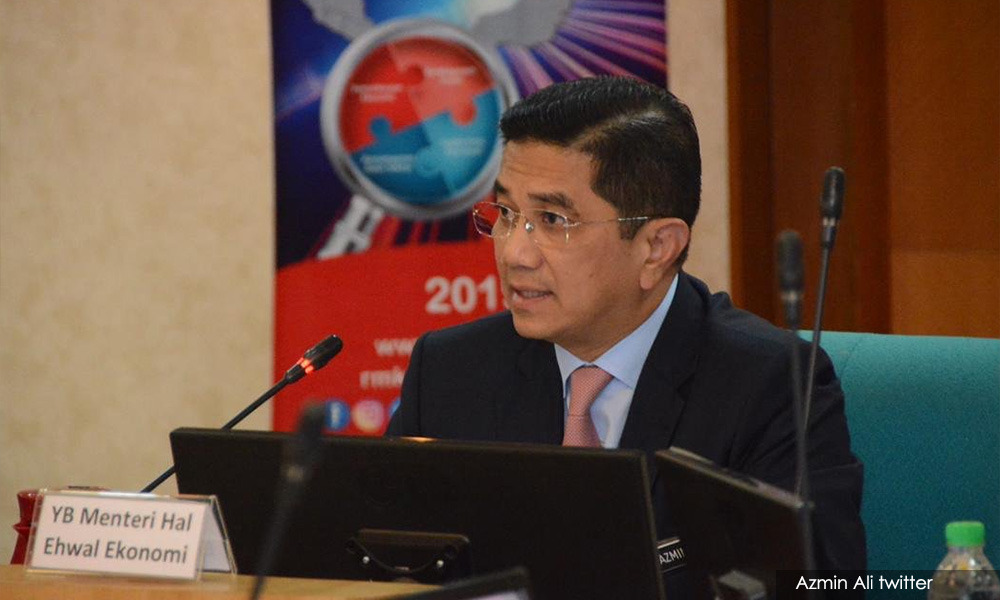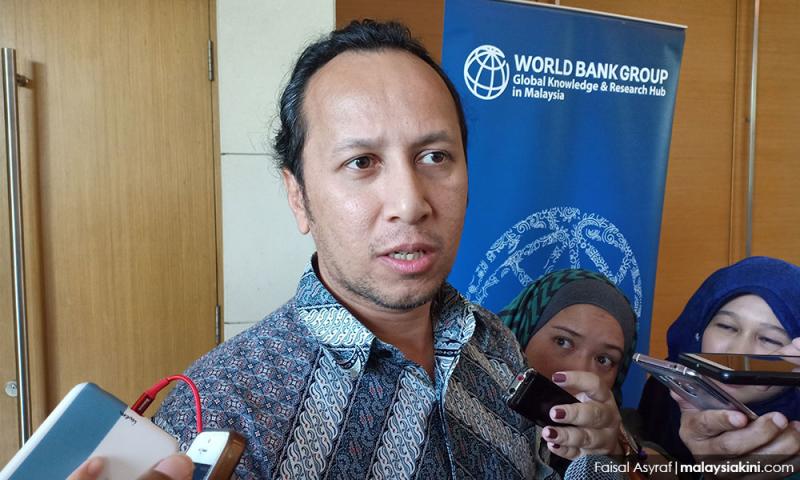PM's adviser: Accept reality, poverty is a problem
The prime minister's economic adviser Muhammed Abdul Khalid (above) said it is a fact that the Economic Affairs Ministry's (MEA) yardstick for poverty was outdated.
"We shouldn't feel embarrassed if a new yardstick shows high poverty rates. That is a fact.
"To resolve this problem, we should accept reality. Only then can a solution be conceived," said Muhammed in a commentary published in Sinar Harian today.
The former Khazanah Research Institute director said although the poverty line income (PLI) had reduced from 50 percent since 1957, an absolute measure of poverty can no longer be used.
Muhammed said MEA's adoption of poverty line income (PLI) - defined in absolute terms as a monthly income of RM980 for Peninsular Malaysia, RM1,180 for Sabah and RM1,020 for Sarawak - was unrealistic.
"For comparison, Palestine and Zimbabwe, countries with a GDP size that is one-tenth of Malaysia, has a higher PLI level," said Muhammed.
MEA data also suggested that there are five states (Johor, Malacca, Selangor, Kuala Lumpur and Putrajaya) in Malaysia with zero percent poverty, which Muhammed argued was not true.
"A Unicef and DM Analytics study last year had used the (relative poverty line) which showed that almost every child living in low-cost flats in Kuala Lumpur was in poverty," he said.
Should Malaysia adopt the approach of developed countries - conceiving poverty level, for instance, at 50 percent of median household income - Malaysia's poverty rate would have been 16 percent in 2016, up from 15.6 percent in 2014.

Muhammed was commenting on Economic Affairs Minister Azmin Ali's (above) criticism of claims by UN special rapporteur on extreme poverty and human rights Philip Alston on Malaysia's poverty levels.
Azmin had defended Malaysia's use of PLI to determine poverty levels because it is higher than the USS1.25 (RM5.26) per day PLI targeted by the UN Sustainable Development Goal 1.
He also claimed that Alston's belief that a sizeable portion of Malaysians have limited access to basic needs to be "misconceived" and "lacking empirical evidence".
At a policy level, Muhammed said the government should not only focus on poverty eradication, but address income inequality and social mobility.
"What is important is we face reality - that the yardstick we have been using needs to change.
"If not, we will face poverty of the worst kind - poverty of the soul and morality," he said.
RM12.50 / month
- Unlimited access to award-winning journalism
- Comment and share your opinions on all our articles
- Gift interesting stories to your friends
- Tax deductable
